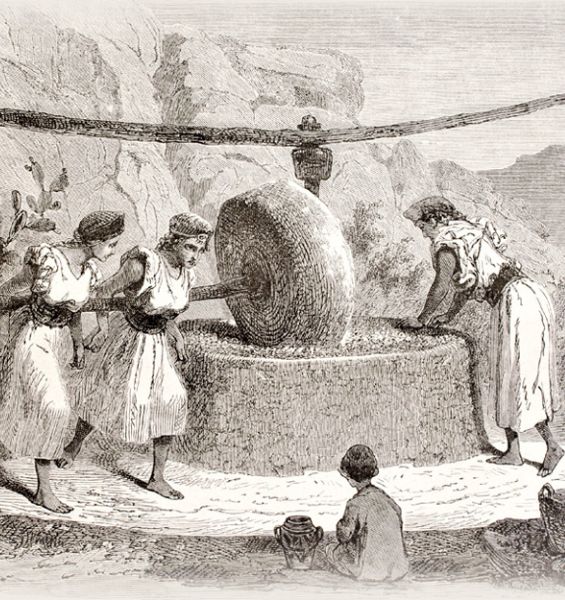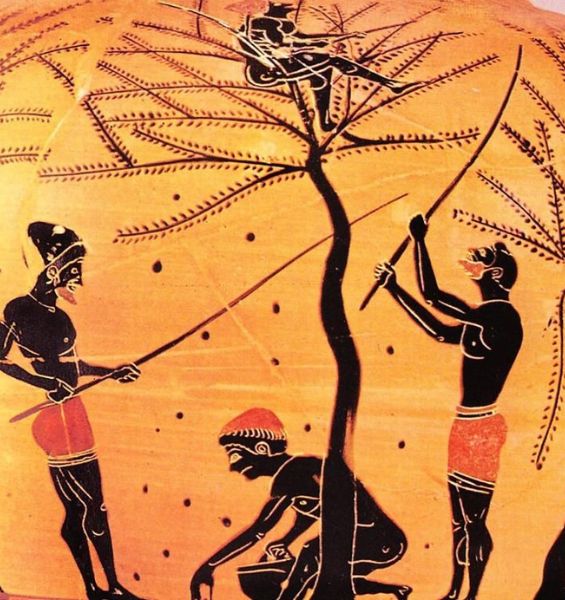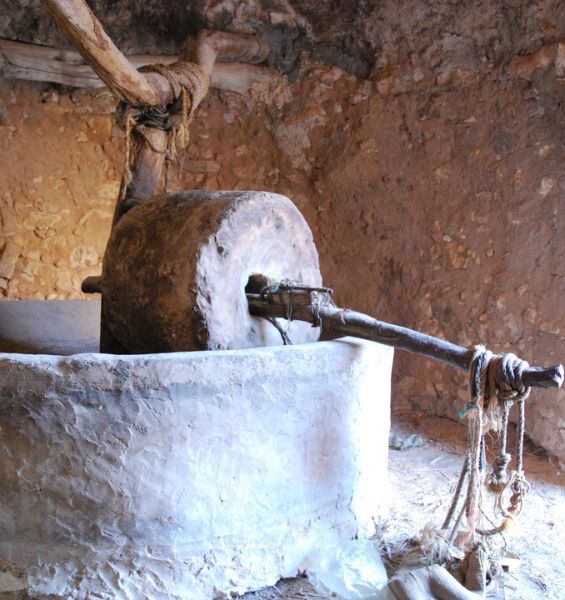


Let's start with a legend ...
According to the legend, Adam, who was expelled from heaven by eating the forbidden fruit with Eve, decides
to ask God to forgive him and all humanity. He assigns his son Seth on this issue and sends him to the Garden of Paradise.
The angel who guards the garden listens to Seth and gives him three seeds from the Tree of Goodness, saying that he should
put the seeds in his mouth before burying his father. Adam dies shortly after and is buried in the Hebron Valley near
Mount Tabor. The three trees that grow at the place where Adam is buried are “Olive”, “Cedar” and “Cypress”. Peace has
been established between God and man. The olive thus became a symbol of peace.
There is no consensus on the age and homeland of the olive tree, which is a typical Mediterranean plant and its root
dates back to prehistoric times, nor where the olive was first domesticated. However, according to many scientific literature,
olive is a miracle of nature. In Mediterranean legends, its name is referred to as "Immortal Tree" or "Tree of Life".
The leaves of the olive tree are symbols of victory, wisdom, and peace.
It is known that olive cultivation has been done for 6,000 years. However, during the archaeological studies,
39,000-year-old olive tree fossils were found on the island of Santorini in the Aegean Sea.
Again, an archaeological study showed that the ancient city of Klazomenai, located near the Urla district of Izmir,
was an important olive and olive oil production center of its time.
Cretans played the most important role in the spread of olive oil culture to other tribes in the Mediterranean.
The place of olive was very important in the trade network they carried out with their trade fleets for about 3000 years.
In Turkey, olive cultivation has been one of the most important agricultural activities in our country after the Republic.


In 1929, with the directives given by Atatürk during a trip to Yalova for the development of olive
cultivation, an olive growing campaign was started and in 1937 the Bornova Olive Research Institute
was established to conduct research on this subject.
Although the importance given to olives decreased in the 1950s, Turkey made its first olive oil export
Despite the fact that there was a law to protect olive cultivation in the 1980s and later, olive groves were sacrificed for
the sake of coastal tourism and other activities took the place of olive cultivation.in the 1961-1962 period.
Since the 2000s, as in the first years of the Republic, serious developments have been observed in production both in terms
of quality and quantity. Although the traditional understanding of olive cultivation still continues, modern olive cultivation
has also made progress in recent years with many innovations such as tasting panels and the development of boutique olive cultivation.
Endless respect to all our business people and workers who contribute to the development of the sector...